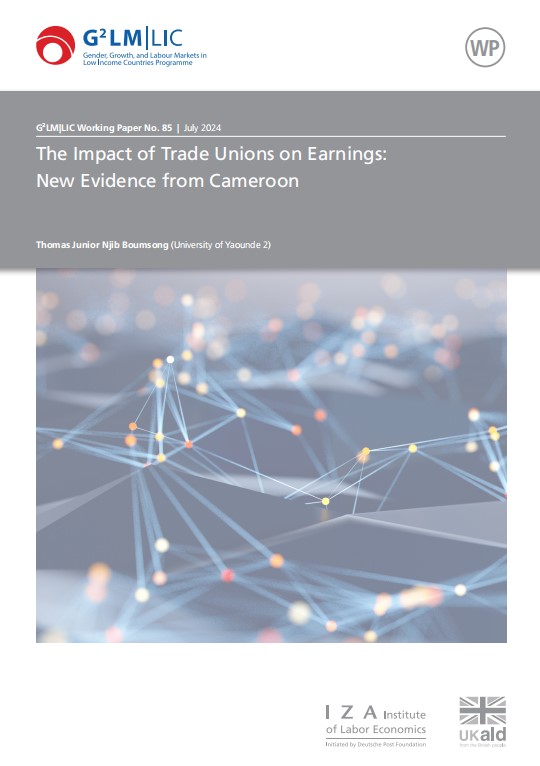The role of trade unions in the Cameroonian labour market is still a little discussed topic, despite the end of trade union monolithism in 1995 and the emergence of collective agreements that have been genuinely negotiated between the social partners since 2000. Using only the second Survey on Employment and the Informal Sector (EESI) − due to the unavailability to the public of data from the third wave of this survey at the time of writing − conducted by the National Institute of Statistics in 2010, this paper assesses the influence of union presence and union membership on the monthly earnings of formal and informal sector employees, highlighting the specificities of the Cameroonian industrial relations system. The empirical results – which are mainly based on the Poisson pseudo- maximum likelihood estimator – show that the presence of a trade union and/or a staff representative in a workplace has a positive and significant influence on income, except in the public sector. When the analysis is restricted to workplaces where there is at least one union, the results reveal that union membership is not an explanatory factor for the average earnings gap between union and non-union employees in the informal and public sectors. In the formal private sector, however, union members are paid less than their non-union counterparts.
Note: An earlier version of this article is available here.

The Impact of Trade Unions on Earnings: New Evidence from Cameroon
- Thomas Junior Njib Boumsong